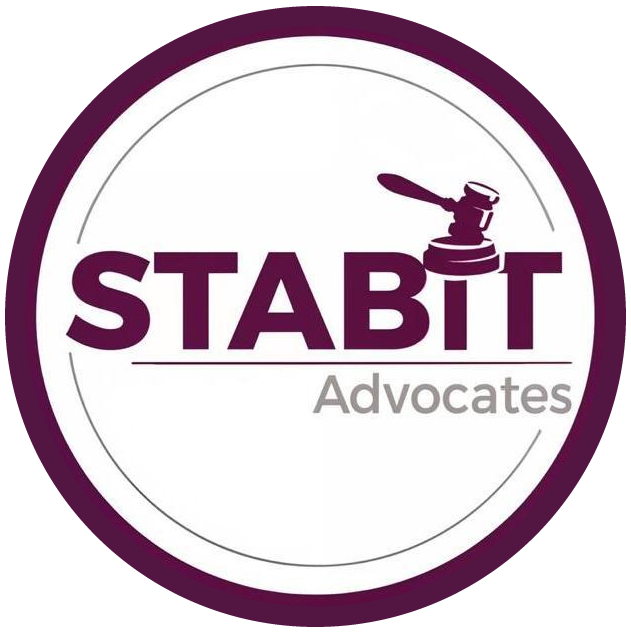The Remote Work Revolution: Navigating the Legal Landscape of the New Corporate Reality. A stabit…

Legal Guidance on Hiring in Rwanda
September 17, 2024 10:24 am
Stabit Advocates is pleased to present this comprehensive legal guide on the procedures and regulations governing the hiring process in the Republic of Rwanda. This document aims to provide clear and detailed information to assist employers in navigating the legal requirements for hiring employees in Rwanda, ensuring compliance with all relevant laws and regulations.
Legal Framework
The legal framework governing employment in Rwanda is primarily established by the Labour Law No. 66/2018 of 30/08/2018 regulating labour in Rwanda. This law outlines the rights and obligations of both employers and employees, ensuring fair and equitable treatment in the workplace.
Employment Contracts
Under Rwandan law, employment contracts must be in writing and include specific details such as:
- The identity of the employer and employee.
- The job title and description.
- The duration of the contract (fixed-term or indefinite).
- The place of work.
- The working hours and conditions.
- The remuneration and payment terms.
- The notice period for termination.
Both parties must sign the contract, and the employee must receive a copy. Contracts can be in Kinyarwanda, English, or French, depending on the parties’ preference.
Recruitment Process
Employers must adhere to non-discriminatory practices during the recruitment process. Job advertisements should be clear and not exclude any potential candidates based on race, gender, religion, or other protected characteristics. Employers are encouraged to use various channels to reach a diverse pool of candidates.
Work Permits and Visas
Foreign nationals seeking employment in Rwanda must obtain a work permit and visa. The Rwanda Directorate General of Immigration and Emigration (DGIE) oversees the issuance of these permits. The types of work permits available include:
- Temporary Work Permit: For short-term employment, valid for up to 90 days.
- Ordinary Work Permit: For long-term employment, typically valid for one to two years and renewable.
- Special Work Permit: For specific categories of workers, such as investors or highly skilled professionals.
Applicants must provide the following documents:
- A valid passport with at least six months of validity.
- A recent passport-sized photograph.
- A completed application form.
- A copy of the employment contract.
- Proof of qualifications and experience.
- A police clearance certificate from the applicant’s home country.
Employee Rights and Benefits
Rwandan labour law mandates several employee rights and benefits, including:
- Minimum Wage: Employers must pay at least the minimum wage as determined by the government.
- Working Hours: The standard workweek is 45 hours, with a maximum of 8 hours per day. Overtime must be compensated at a higher rate.
- Leave Entitlements: Employees are entitled to annual leave, sick leave, and maternity/paternity leave as stipulated by law.
- Health and Safety: Employers must provide a safe working environment and comply with occupational health and safety regulations.
- Social Security: Employers and employees must contribute to the Rwanda Social Security Board (RSSB) for pension, medical, and occupational hazard insurance.
Employee Data Protection
In accordance with the Law No. 058/2021 of 13/10/2021 on the Protection of Personal Data and Privacy, employers in Rwanda are required to protect the personal data of their employees. Key provisions include:
- Data Collection and Processing: Employers must collect and process employee data lawfully, fairly, and transparently. Data should be collected for specified, explicit, and legitimate purposes and not further processed in a manner incompatible with those purposes.
- Consent: Employers must obtain the explicit consent of employees before collecting or processing their personal data, unless the processing is necessary for the performance of a contract or compliance with a legal obligation.
- Data Security: Employers must implement appropriate technical and organizational measures to ensure the security of personal data, protecting it against unauthorized or unlawful processing, accidental loss, destruction, or damage.
- Data Access and Correction: Employees have the right to access their personal data held by the employer and request corrections if the data is inaccurate or incomplete.
- Data Retention: Personal data should not be kept for longer than necessary for the purposes for which it was collected. Employers must establish data retention policies and securely dispose of data that is no longer needed.
Non-Compete Clauses
Non-compete clauses are contractual provisions that restrict employees from engaging in activities that compete with their employer’s business during and after the term of employment. In Rwanda, non-compete clauses must adhere to the following principles to be enforceable:
- Reasonableness: The clause must be reasonable in scope, duration, and geographic area. It should not impose undue hardship on the employee or unreasonably restrict their ability to earn a livelihood.
- Legitimate Interest: The employer must demonstrate a legitimate business interest that justifies the restriction, such as protecting trade secrets, confidential information, or customer relationships.
- Consideration: The employee must receive adequate consideration in exchange for agreeing to the non-compete clause. This can be in the form of employment, a promotion, or other benefits.
- Clarity: The terms of the non-compete clause must be clear and specific, outlining the prohibited activities and the duration of the restriction.
Employers should seek legal advice when drafting non-compete clauses to ensure they comply with Rwandan law and are enforceable in court.
Employee Monitoring
Employee monitoring in Rwanda must comply with the Labour Law No. 66/2018 and the Law No. 058/2021 on the Protection of Personal Data and Privacy. Key considerations include:
- Legitimate Purpose: Monitoring must be conducted for legitimate business purposes, such as ensuring productivity, protecting company assets, or maintaining workplace safety.
- Transparency: Employers must inform employees about the monitoring practices, including the types of monitoring (e.g., email, internet usage, CCTV), the purposes, and the methods used.
- Consent: Employers should obtain explicit consent from employees for monitoring activities, especially when it involves the processing of personal data.
- Proportionality: Monitoring should be proportionate to the intended purpose and not excessively intrusive. Employers should balance their interests with the employees’ right to privacy.
- Data Security: Any data collected through monitoring must be securely stored and protected against unauthorized access, loss, or misuse.
- Access and Review: Employees should have the right to access data collected about them and request corrections if the data is inaccurate or incomplete.
- Retention and Disposal: Monitoring data should not be retained longer than necessary for the purpose for which it was collected. Employers must establish clear data retention policies and ensure secure disposal of data that is no longer needed.
Termination of Employment
Employment contracts can be terminated by mutual agreement, resignation, or dismissal. The Labour Law outlines specific grounds for dismissal, including misconduct, incompetence, and redundancy. Employers must provide written notice and adhere to the notice periods specified in the employment contract. Severance pay may be required depending on the circumstances of the termination.
Dispute Resolution
Employment disputes can be resolved through mediation, arbitration, or litigation. The Labour Inspectorate and the Labour Court are the primary bodies responsible for handling employment-related disputes. Employers and employees are encouraged to seek amicable solutions before resorting to legal action.
Conclusion
Stabit Advocates is committed to providing expert legal guidance to ensure that your hiring practices in Rwanda are compliant with all applicable laws. For further assistance or legal representation, please contact our office.
If you love our article on “Legal Guidance on Hiring in Rwanda,” check back here for more legal news
Contact Information
Stabit Advocates
Website: www.stabitadvocates.com
Email: info@stabitadvocates.com
Phone: +250 789 366 274
For more information or to discuss your case, please contact us at www.stabitadvocates.com.
This guide is intended to provide general information and does not constitute legal advice. For specific legal advice tailored to your situation, please consult with a qualified attorney at Stabit Advocates.
Sources:
- An Overview of New Labour Law in Rwanda – Academia.edu
- REVISED NATIONAL EMPLOYMENT POLICY – International Labour Organization
- Result Based Performance Management (RBM) Policy for Rwanda Public Service
- Home [www.gmo.gov.rw]
- Law governing Results-Based Performance Management in … – RwandaLII
- Ibirimo/Summary/Sommaire page/urup. – MINIJUST
- Health and Safety Laws at Work in Rwanda – Laws on Occupational Health …
- Law regulating Labour in Rwanda – RwandaLII
- An Overview of New Labour Law in Rwanda | Waweru | Research on …




This Post Has 0 Comments